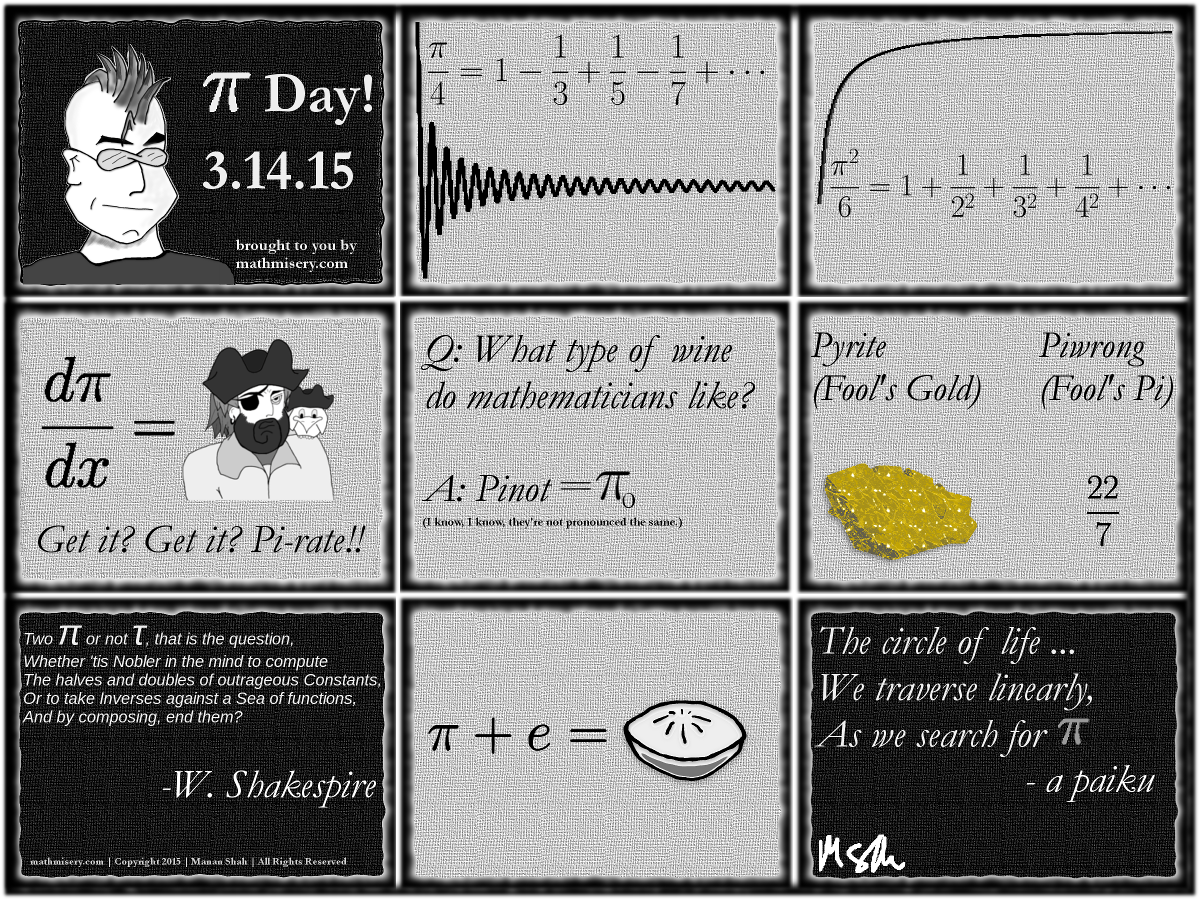Click the image for a larger version.
\(“\)
Two \(\pi\) or not \(\tau\), that is the question,
Whether ’tis Nobler in the mind to compute
The halves and doubles of outrageous Constants,
Or to take Inverses against a Sea of functions,
And by composing, end them?
– W. Shakespire
Two \(\pi\) or not \(\tau\), that is the question,
Whether ’tis Nobler in the mind to compute
The halves and doubles of outrageous Constants,
Or to take Inverses against a Sea of functions,
And by composing, end them?
– W. Shakespire
